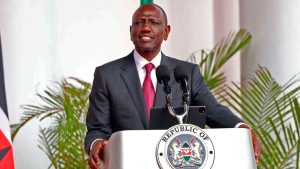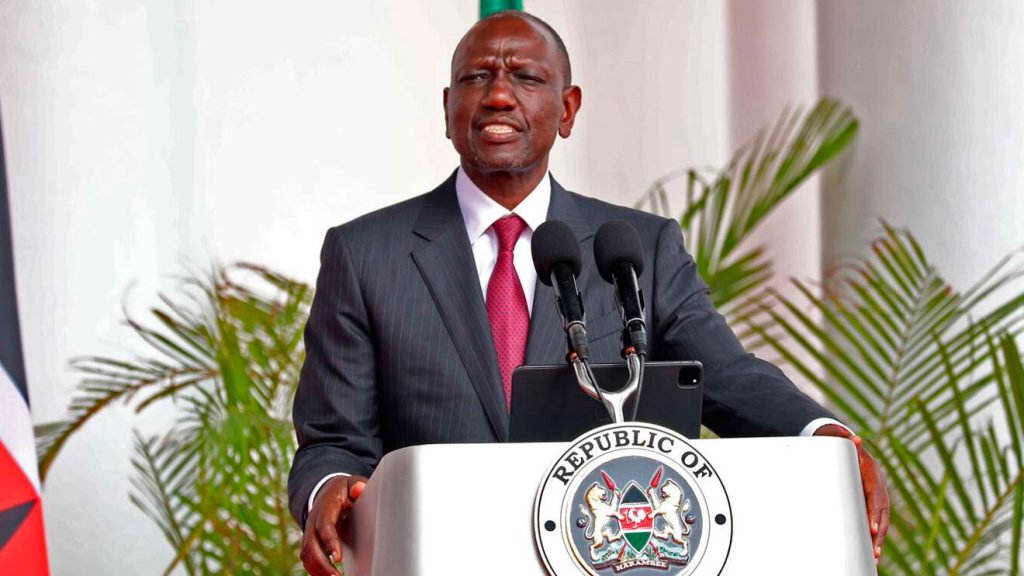In a recent international address, President William Ruto of Kenya made a compelling call for the establishment of a new global financial architecture that would be equitable for developing nations, particularly those in Africa. His appeal underscores the pressing need for reform in the international financial system, which has long been criticized for perpetuating inequality and hindering the progress of poorer nations.
President Ruto’s advocacy for change centers around the policies of the International Monetary Fund (IMF) and the World Bank. Historically, these institutions were created to stabilize the global economy and foster development through financial assistance and structural reforms. However, many developing countries, including those in Africa, have experienced mixed outcomes from their engagements with the IMF and the World Bank. Critics argue that the conditionalities attached to loans and assistance often lead to austerity measures that can stifle growth and worsen poverty.

In his address, President Ruto highlighted several key areas where the current financial system falls short. One major issue is the stringent conditions imposed by the IMF and the World Bank, which often require borrowing countries to implement significant cuts in public spending. These austerity measures can undermine social services such as healthcare, education, and infrastructure development, which are crucial for sustainable development. For African nations, which already face significant developmental challenges, such conditions can be particularly detrimental.
Moreover, President Ruto pointed out the structural biases inherent in the global financial system. The governance structures of the IMF and the World Bank tend to favor wealthy nations, giving them disproportionate influence over decision-making processes. This imbalance often means that the policies and strategies devised by these institutions do not adequately reflect the needs and priorities of developing countries. President Ruto’s call for reform includes a demand for a more inclusive and democratic governance structure within these institutions, ensuring that the voices of poorer nations are heard and considered.
Another critical aspect of President Ruto’s proposal is the need for debt relief and fairer lending practices. Many African countries are burdened with unsustainable debt levels, much of which has been accumulated under unfavorable terms. High debt servicing costs divert essential resources away from development projects and social services. President Ruto advocates for a comprehensive debt relief initiative that would allow these nations to redirect funds towards achieving the Sustainable Development Goals (SDGs) and building resilient economies.
Additionally, President Ruto emphasized the importance of creating financial mechanisms that support sustainable development and climate resilience. Africa is disproportionately affected by climate change, yet it receives a fraction of the global funding available for climate adaptation and mitigation. He called for the establishment of new funding structures that prioritize green investments and provide adequate financial support to countries most vulnerable to climate impacts.
In his vision for a new global financial architecture, President Ruto also underscored the necessity for innovative financing solutions that leverage technology and private sector involvement. He advocated for partnerships that mobilize resources through digital platforms, fintech, and impact investing. Such approaches could help bridge the financing gap faced by many African nations and promote inclusive economic growth.
In conclusion, President William Ruto’s call for a new global financial architecture is a critical appeal for justice and equity in the international financial system. By advocating for reforms in IMF and World Bank policies, debt relief, fairer lending practices, and innovative financing mechanisms, he aims to create a more supportive environment for developing nations. This vision aligns with the broader global agenda of achieving sustainable development and reducing inequalities. As the world grapples with economic uncertainties and environmental challenges, President Ruto’s message resonates with the urgent need for a financial system that serves all nations fairly and effectively.


